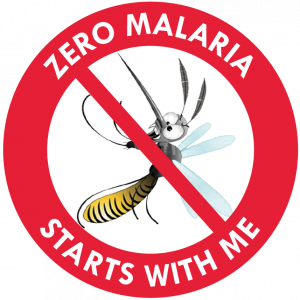By Foday Moriba Conteh
It was stated on the 29 June 2020 that mass distribution of long-lasting insecticide treated bed nets is underway in Freetown and its suburbs to complete a nationwide household distribution of 4.6 million mosquito nets. The campaign started in mid-May with nets distributed in 14 of the country’s 16 districts. The remaining two districts (Western Area Urban and Western Area Rural), in the capital and its suburbs account for around a fifth of the 7-million population and has also been accounting for nearly 60% of the confirmed COVID-19 cases.
“A special strategy was needed to carry out the distribution of the bed nets in these COVID-19 hotspot communities,” says Evans Liyosi, WHO Country Representatives in Sierra Leone. “Safety of the frontline personnel implementing the interventions and safety of the beneficiaries was carefully thought out to mitigate people getting infected with COVID-19 in the process of protecting them from malaria”.
The incidences of malaria also remain high in Freetown particularly in areas with poor sanitation such as the slum communities and informal settlements. Sub national data reported in the World Malaria report 2019 showed that 15% of all malaria cases and 26% of all malaria deaths in Sierra Leone occurred in these two districts.
The campaign is part of the Government’s commitment to continue with the provision of uninterrupted essential health services during the COVID-19 pandemic.
Malaria is widespread in Sierra Leone with the entire population at risk of the disease, and where it remains the leading cause of ill health and deaths among children and pregnant women. According to the National Malaria Control Programme, malaria accounts for nearly 40% of the disease burden among all outpatient visits and an estimated 1,000 deaths annually among children under 5 years.
According to a modelling analysis conducted by WHO and partners, undertaking the 2020 nationwide mass LLINs campaign and continuing to provide malaria prevention and control services will avert an estimated 13,000 deaths and reduce the number of malaria cases by 29% in the country in 2020 alone.
Sierra Leone relies on multiple interventions to tackle the prevalence of malaria and reduce its devastating effects. Malaria treatment is free in the public health facilities, as is intermittent preventive treatment for infants and pregnant women and the routine distribution of long-lasting insecticidal nets.
Once the Freetown campaign ends, Sierra Leone would have made a significant gain in achieving Universal LLINs Coverage to protect its entire population against malaria even during the COVID-19 pandemic.
Malaria is a preventable disease. Yet, millions of people across Africa suffer from it every year. “If individuals, families and communities adhere to and adopt correct measures, such as improved sanitation and consistent use of insecticide-treated nets, among other precautions, they could avoid the devastation that the disease can cause,” says Dr Louisa Ganda, WHO Malaria Programme Expert in Sierra Leone. “Protecting against malaria has health and economic benefits to families and communities – it saves lives and blocks interruption of economic and livelihood activities.”
The country has successfully conducted multiple LLIN campaigns in the past to protect families and communities from malaria. However, this is the first time the WHO-recommended PBO (piperonyl butoxide) insecticide treated nets are being distributed to every family unit in a national malaria prevention campaign. PBO enhances the effectiveness of long-lasting insecticide nets.
The nets are distributed following registration and allocation of vouchers to households that the beneficiaries would present at LLIN collection sites to redeem their nets. “I collected my nets on the second day after start of the distribution. We had two but they have almost worn out. So, the new ones are very timely, and we are happy that we are now able to replace the old ones”, says Yeanoh Conteh, a mother of three in Freetown. “I introduced my children to sleeping under nets from the day they were born, and it has helped to keep us safe from malaria”.
The 2020 campaign is led by the Ministry of Health and Sanitation, with technical support from the Roll Back Malaria Partnership, which includes WHO, and financial support from The Global Fund to Fight AIDS, Tuberculosis and Malaria and the President’s Malaria Initiative with the United States Agency for International Development. WHO facilitated the training and coordination of independent monitors brought in to reinforce a good-quality distribution campaign.




